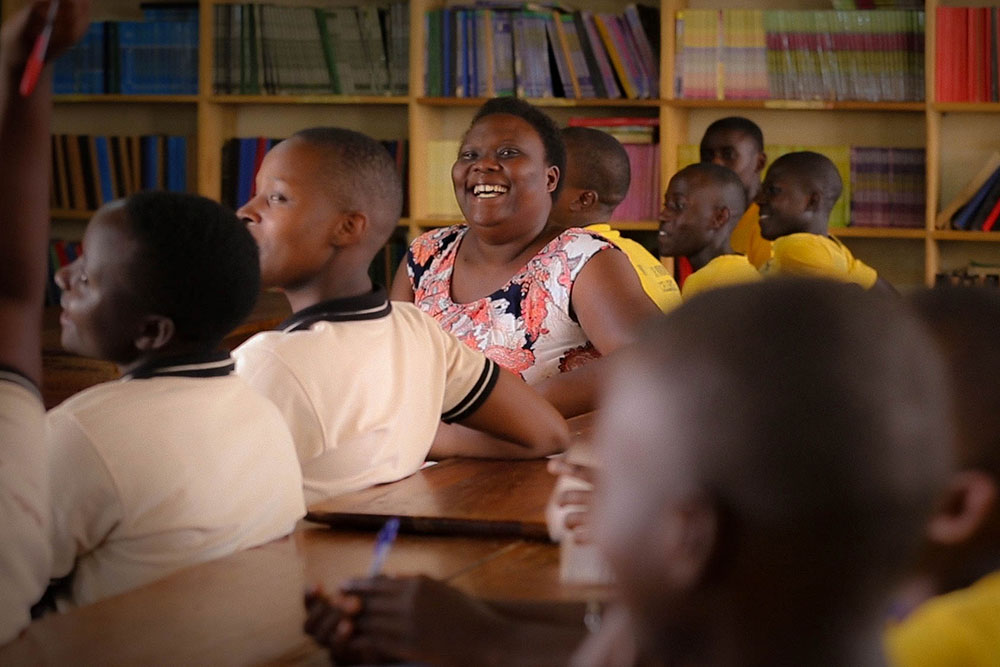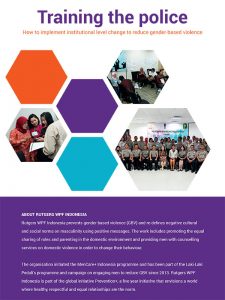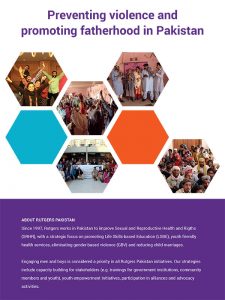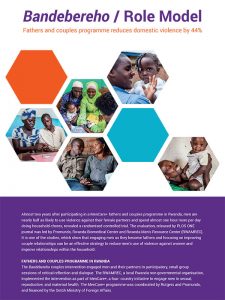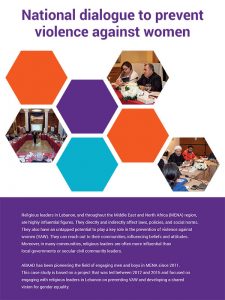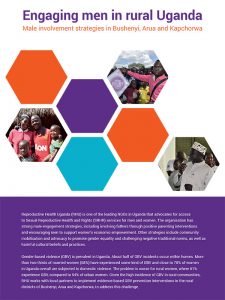Extensive research and expertise in the field of violence prevention against women, has shown that part of the answer is to address the root causes of violence. That means using a gender-transformative approach in our work: eliminating harmful gender norms to create a more gender equal and safer world.
One proven strategy to achieve that, is by engaging men and boys. The Prevention+ programme, which works with partners across five countries and regions, is doing just that.
Below you can find five cases from Indonesia, Pakistan, Rwanda, Lebanon and Uganda, that illustrate the success of engaging men and boys.
Indonesia
Rutgers WPF Indonesia prevents gender-based violence (GBV) and re-defines negative cultural and social norms on masculinity using positive messages. The work includes promoting the equal sharing of roles and parenting in the domestic environment and providing men with counselling services on domestic violence in order to change their behaviour. On the institutional level, Rutgers WFP Indonesia gives trainings to the national police and works on improving referral systems for local police handling GBV cases.
Pakistan
Engaging men and boys is considered a priority in all Rutgers Pakistan initiatives. Strategies include capacity building for stakeholders (such as trainings for government institutions, community members and youth), youth empowerment initiatives, participation in alliances and advocacy activities. A fatherhood campaign was conducted across Pakistan to encourage the transformation of negative gender norms to prevent GBV and to promote the rights of all women and girls.
Rwanda
The Mencare+ programme, the precurser of Prevention+, in Rwanda reveals 40% less violence in men against their partners. The programme in Rwanda (known as Bandebereho, meaning ‘role model’ in Kinyarwanda) built the skills needed to have stronger, more equal and non-violent relationships among couples. Focusing on power and gender roles, the programme transformed ideas and norms about who does what and who has power in the household, as well as in intimate relations. The RWAMREC, a local Rwanda non-governmental organisation, implemented the intervention as part of MenCare+, a four-country initiative to engage men in sexual, reproductive, and maternal health.
Middle East and North Africa
Religious leaders in Lebanon, and throughout the Middle East and North Africa (MENA) region, are highly influential figures. They directly and indirectly affect laws, policies, and social norms. ABAAD has been pioneering the field of engaging men and boys in MENA since 2011. This case study is based on a project that was led between 2012 and 2015 and focused on engaging with religious leaders in Lebanon on preventing VAW and developing a shared vision for gender equality.
Uganda
Reproductive Health Uganda (RHU) is one of the leading NGOs in Uganda that advocates for access to Sexual Reproductive Health and Rights (SRHR) services for men and women. The organisation has strong male engagement strategies, including involving fathers through positive parenting interventions and encouraging men to support women’s economic empowerment. Other strategies include community mobilisation and advocacy to promote gender equality and challenging negative traditional norms, as well as harmful cultural beliefs and practices.
The video ‘The Journey of Faith’ tells the story of Amanya Faith Betega, who leads the Prevention+ program in the rural district of Bushenyi, Uganda. Faith works with young people and local leaders, especially religious leaders, to promote gender equality and violence prevention.

